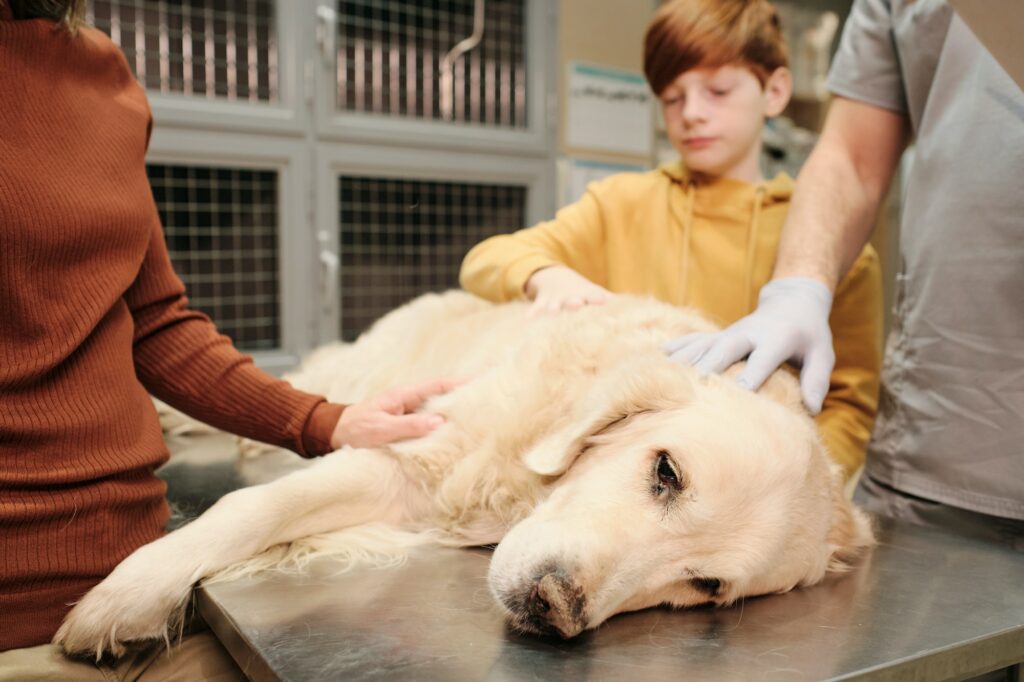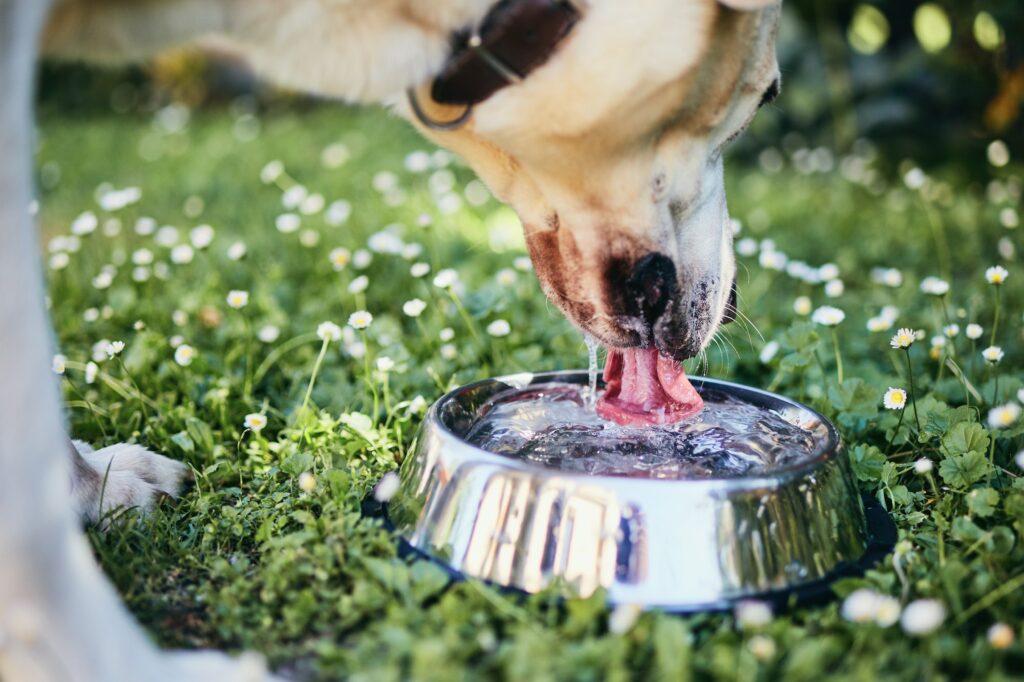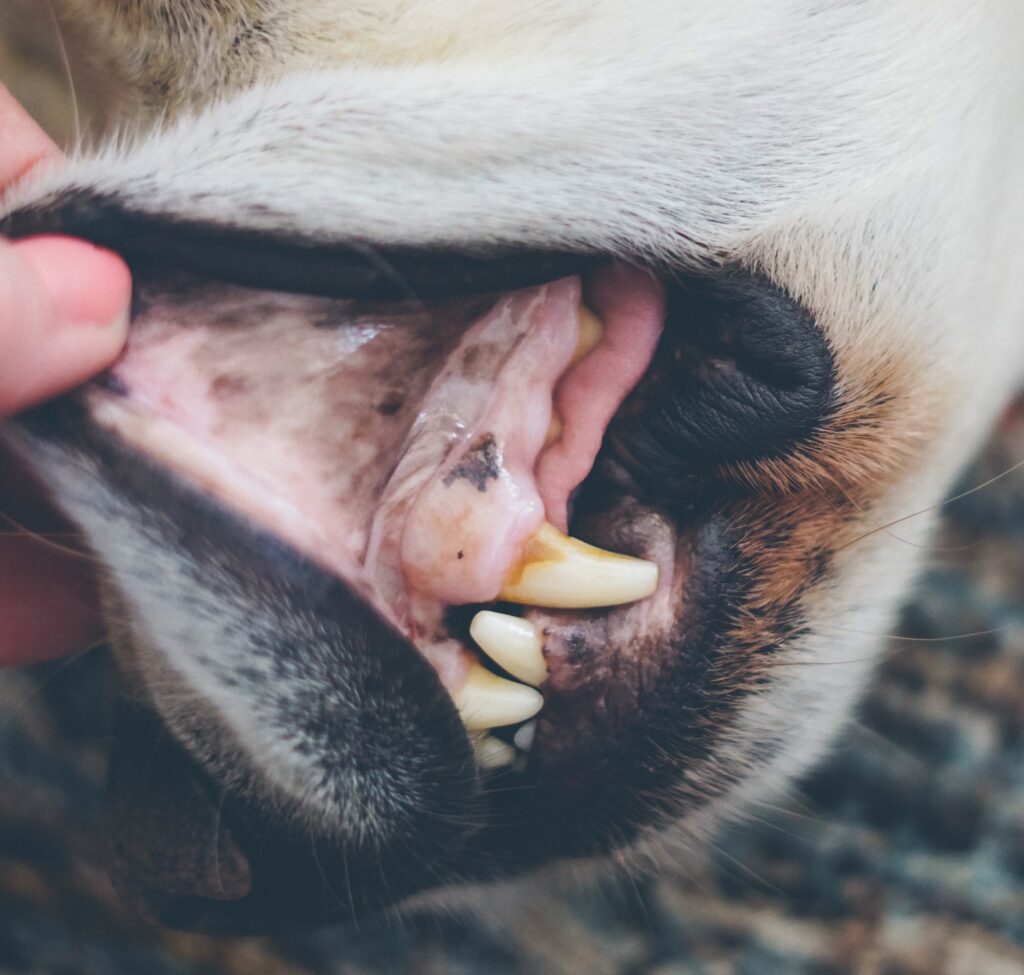As dog owners, we all want our furry friends to be happy and healthy. Our dogs are not only our pets but also members of our family. So if your dog is sick it’s only logical that you want to provide them with the best possible care so that they can live long, happy lives. Unfortunately, sometimes our dogs can’t tell us when something’s wrong. They may be suffering from an illness or injury, but because they can’t speak to us, we may not realize that something is wrong until it’s too late.
That’s why it’s important to know how to recognize the signs that your dog might be sick. Being able to identify the signs of illness in your dogs can help us take the necessary steps to get them the care they need and prevent any further complications.
In this blog post, we will cover some common symptoms that indicate your dog might be feeling under the weather.
Signs Your Dog Is Sick
As pet owners, it’s important to recognize that our dogs may be suffering from an illness or injury, even if they can’t tell us directly. One way to identify potential health problems is by paying attention to subtle changes in our dogs’ behavior, appetite, and energy levels. Although dogs can’t speak to us, their body language is often very expressive and can give us clues about how they’re feeling. However, in the early stages of an illness, dogs may instinctively hide how they feel, so it’s essential to be vigilant and notice any changes as soon as possible. By doing so, we can take the necessary steps to get our furry friends the care they need and prevent any further complications. Here are just a few signs that can let you know your dog is sick
Loss of Appetite

One of the most common signs is a loss of appetite. If your dog is usually a hearty eater but suddenly loses interest in food or only eats a small amount, it could be a sign that they’re not feeling well. Loss of appetite is a common symptom of many illnesses, including infections, digestive problems, and even cancer. Stress or a change in the dog’s environment can also cause a loss of appetite.
It’s important to take note of how long your dog has been exhibiting a loss of appetite, as it could indicate a more serious underlying issue. If your dog’s loss of appetite persists for more than a day or two, it’s important to take them to the vet to get checked out. The vet can perform a physical exam and run diagnostic tests to identify the underlying cause of the loss of appetite. Depending on the diagnosis, the vet may recommend a course of treatment, such as medication or a change in diet, to help your furry friend regain their appetite and get back to their happy, healthy self.
Increased or Decreased Urination

Changes in your dog’s urination habits can be an indication of an underlying health issue. Dogs that suddenly start urinating more frequently or in larger amounts than usual may be suffering from urinary tract infections or kidney problems. On the other hand, if your dog is urinating less frequently or in smaller amounts than usual, it could be a sign of dehydration or a bladder infection. Increased thirst and urination can also be symptoms of diabetes, which is a common condition in dogs. If left untreated, diabetes can cause serious health problems in dogs, including blindness, kidney disease, and nerve damage. Therefore, if you notice any changes in your dog’s urination habits, it is important to take them to the vet for a check-up to determine the underlying cause and receive appropriate treatment. The vet may recommend diagnostic tests such as blood work, urinalysis, or ultrasound to identify the cause of the changes in urination habits, and then prescribe medications or dietary changes to help alleviate the condition.
Vomiting or Diarrhea

Vomiting or diarrhea are also common signs that your dog might be sick. These symptoms can be caused by a variety of factors, such as eating something that doesn’t agree with them, a sudden change in diet, or an underlying illness. It’s important to take note of how often your dog is experiencing vomiting or diarrhea, as well as any other symptoms that may be present, such as lethargy or loss of appetite.
Unexplained Weight Loss or Gain

Unexplained weight loss in dogs can be a common symptom of many illnesses. These illnesses can include infections, digestive problems, and even cancer. In some cases, stress or a change in the dog’s environment can cause a loss of appetite, leading to weight loss. On the other hand, unexplained weight gain can be a sign of overeating or a lack of exercise, but it can also be an indication of an underlying issue.
If you notice that your dog is losing weight, it is important to keep track of how much weight they are losing and over what period of time. If your dog’s weight loss persists for more than a few days or if you notice other symptoms such as lethargy or loss of appetite, it is important to take them to the vet for a check-up. The vet can perform a physical exam and run diagnostic tests to identify the underlying cause of the weight loss, such as infections, parasites, or other health problems.
Similarly, if you notice that your dog is gaining weight without a change in diet or exercise, it is important to take them to the vet for a check-up. The vet can perform a physical exam and run diagnostic tests to identify the underlying cause of the weight gain, such as hormonal imbalances or an underlying medical condition.
Change in Drinking Habits

Changes in drinking habits can be an indication that your dog is sick. If your dog suddenly starts drinking more water than usual or seems excessively thirsty, it could be a sign of an underlying health issue such as kidney disease, diabetes, or Cushing’s disease. On the other hand, if your dog stops drinking water altogether, it could be a sign of dehydration or a serious illness.
Coughing, Wheezing, or Trouble Breathing

One of the key signals that your dog might not be feeling well is coughing, wheezing, or having difficulty breathing. These health issues may indicate an underlying respiratory infection or condition, such as asthma or bronchitis. However, there are other potential causes, such as heart disease or even cancer, which can also lead to respiratory problems in dogs. Therefore, if you notice that your dog is experiencing any of these symptoms, it is important to take them to the vet for a check-up as soon as possible.
When you take your dog to the vet, the veterinarian will perform a thorough physical examination and diagnostic tests, which may include blood tests, x-rays, or even a CT scan. By running these tests, the vet can determine the underlying cause of the respiratory issue and then recommend the most appropriate treatment plan. Depending on the diagnosis, your dog may need antibiotics, anti-inflammatory medication, or even oxygen therapy in severe cases.
It is crucial to take these symptoms seriously and seek veterinary care as soon as possible. Ignoring these symptoms can lead to serious health complications for your furry friend, such as pneumonia or even heart failure. By addressing the problem early on, you can help ensure your dog’s health and well-being. Additionally, you can take steps to prevent respiratory issues in the future, such as keeping your dog away from cigarette smoke and other environmental irritants, ensuring that they maintain a healthy weight and get regular exercise, and having them vaccinated against respiratory diseases like kennel cough.
Changes in Personality

Another sign that your dog may be sick is a change in their personality or general behavior. Dogs that are usually outgoing and friendly but suddenly become withdrawn or aggressive may be suffering from an underlying health issue. Similarly, if your dog is usually calm but suddenly becomes restless or anxious, it could be a sign that something is wrong. These changes in personality and behavior can be difficult to identify, but they are a clear indication that something is not right.
Pale Gums

If your dog’s gums are pale or discolored, it could be a sign that they are anemic, which means that they have a decreased number of red blood cells. Normally, a dog’s gums should be a healthy pink color. Anemia can be caused by a variety of factors, including infections, parasites, or underlying medical conditions.
Changes with Their Eyes

Changes with your dog’s eyes can also be an indication of an underlying health issue. If your dog’s eyes appear cloudy or red, or if they are squinting or pawing at their eyes, it could be a sign of an infection or injury. Additionally, if your dog’s pupils are of different sizes or if they are not responding to light, it could be a sign of a more serious neurological issue.
Stiffness, Lameness, or Difficulty Rising

Stiffness, lameness, and difficulty rising can be signs that your dog is experiencing pain or discomfort, which may be due to an underlying health issue. These symptoms can be caused by a variety of factors, including arthritis, joint problems, and muscle strain. Arthritis is a common condition in dogs, especially in older dogs, and it can cause stiffness and discomfort in the joints. Joint problems, such as hip dysplasia or luxating patella, can also lead to stiffness and lameness in dogs. Muscle strain can occur due to overexertion or injury, causing pain and difficulty in movement.
It is important to note that stiffness and lameness can also be a sign of more serious health issues, such as spinal cord injuries or neurological disorders. Therefore, it is crucial to seek veterinary care as soon as possible if you notice such symptoms in your dog. Prompt treatment can help alleviate pain and discomfort, prevent further complications, and improve your furry friend’s quality of life. Additionally, you can take steps to prevent joint problems in the future by keeping your dog at a healthy weight, providing regular exercise, and avoiding activities that put unnecessary strain on the joints.
Hair Loss or Itchy Skin

Hair loss or itchy skin can be an indication that your dog is suffering from an underlying health issue. Skin problems in dogs can be caused by a variety of factors, such as allergies, infections, parasites, or hormonal imbalances. Allergies, for example, can cause itchy skin, hair loss or rashes, while infections or parasites can lead to hair loss or scabs. Hormonal imbalances, such as an under active thyroid gland, can also cause hair loss in dogs. If you notice that your dog is excessively licking or scratching their skin, or if you notice bald patches or scabs, it is important to take them to the vet for a check-up.
Going to the Vet When Your Dog is Sick
As dog owners, it’s our responsibility to keep our furry friends healthy and happy. Being able to recognize the signs that our dogs may be sick is an essential part of providing them with the care they need. It’s important to remember that even if our dogs can’t speak to us, their body language and behavior can give us clues about how they’re feeling. By paying attention to these signs and taking prompt action, we can help ensure that our dogs receive the necessary medical attention and treatment.
If you notice any of the symptoms mentioned in this blog, it’s important to take your dog to the vet as soon as possible. Ignoring these symptoms can lead to serious health complications for your furry friend, and in some cases, it can even be life-threatening. By taking your dog to the vet, you can get a proper diagnosis and treatment plan, which can help alleviate pain and discomfort, prevent further complications, and improve your dog’s quality of life.
It is our job to advocate for our furry friends and provide them with the care they need to thrive. By being aware of the signs of illness in dogs and taking prompt action, we can help ensure that our dogs live long, happy, and healthy lives.
